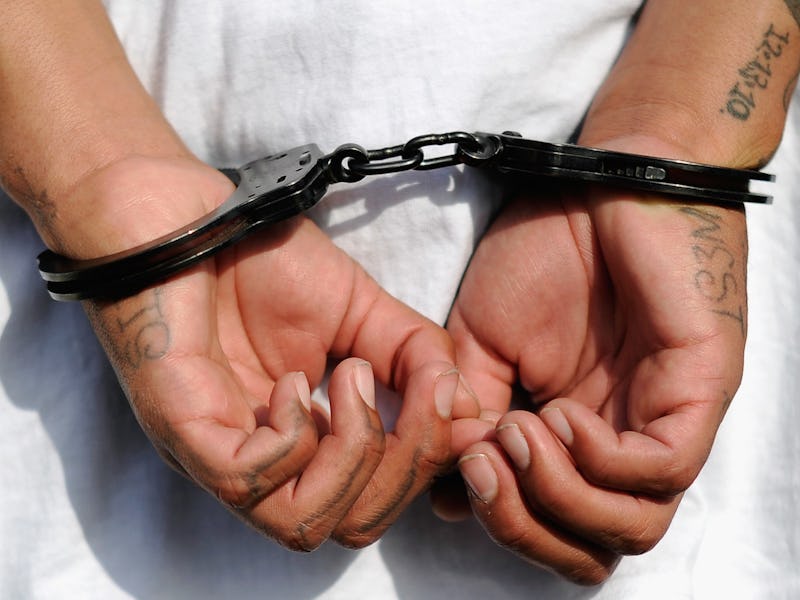More States Are Moving Toward Letting Ex-Felons Vote
Nearly 6 million Americans are disenfranchised after they've paid their debt.

Jimmy Carter says the United States has left democracy behind to become a bacchanal for rich kids, and he’s probably right. Not just because of money in politics but because we go out of our way to keep people from participating. Consider, it’s been 50 years since we passed the Voting Rights Act and millions of Americans are still sweating a marathon battle just for the right to decide whether they want to cast a vote for Donald Trump.
As you can read at The American Prospect, there’s a growing movement to open the polling place to everyone regardless of criminal history. Just last week in Baltimore, a crowd topping 100 people gathered at a statue of Thurgood Marshall holding signs reading “We Want Taxation with Representation!” and “End the New Jim Crow!” Maryland Governor Larry Hogan had just vetoed a bill that would give as many as 40,000 residents — ex-felons, mostly black Americans — the right to vote as soon as they return home from prison instead of waiting through a probation period.
With the exceptions of Maine and Vermont, every state restricts the voting rights of felons to some degree, whether that’s denying the vote to felony inmates as well as offenders on parole and probation, or permanently disenfranchising anyone convicted of a felony.
The National Conference of State Legislatures tracked 18 states this year that considered legislation to loosen the cuffs on felon voting rights, up from 13 states in 2014. Wyoming — one of the most restrictive states for felon voting rights — approved a bill at the start of the year to automatically restore rights to some nonviolent offenders without going through a state application process. Likewise California this month announced that roughly 60,000 former offenders will get a chance to vote in the next election after years of being denied.
Still, by The Sentencing Project’s count, 5.85 million Americans remain disenfranchised. Black voters are disproportionately shut out of elections, as felony restrictions keep one of 13 from having their voices heard. Obama addressed this disparity in July at an NAACP Conference. “If folks have served their time, and they’ve reentered society, they should be able to vote,” he said. His words were entirely consistent with the Federal Bureau of Prisons’ mission statement about “self-improvement opportunities to assist offenders in becoming law-abiding citizens.” One of the best ways to motivate people to be better citizens is if they’re actually, you know, part of society.